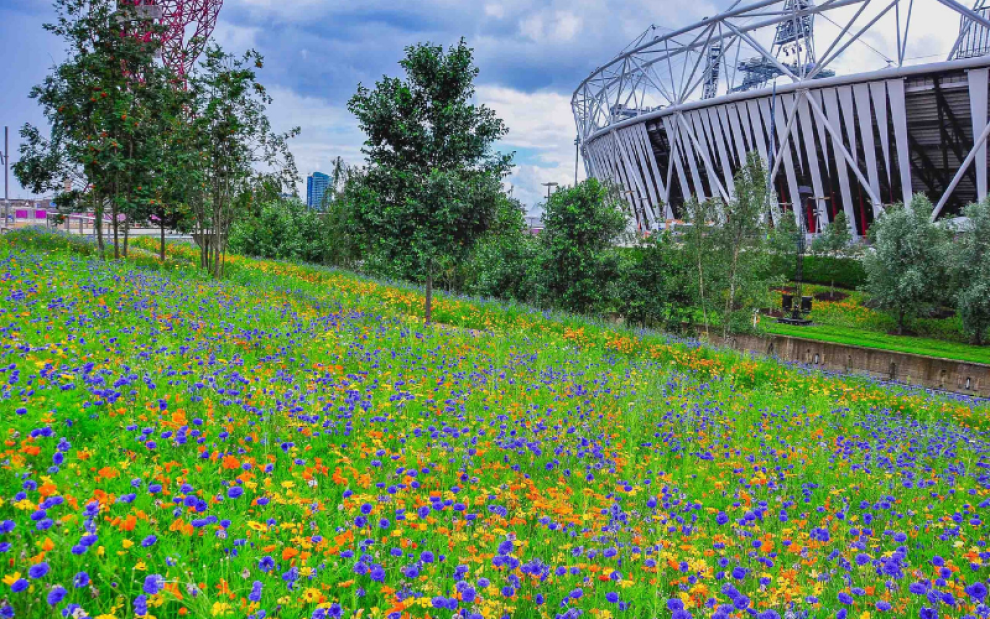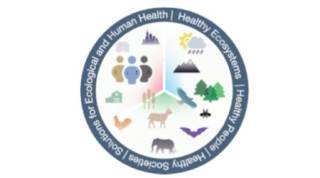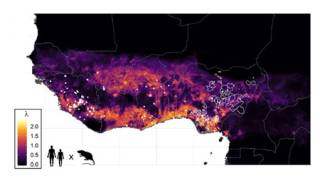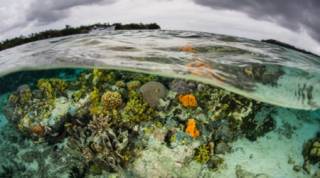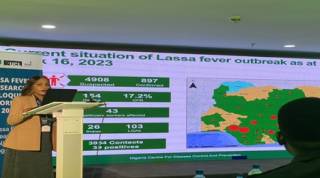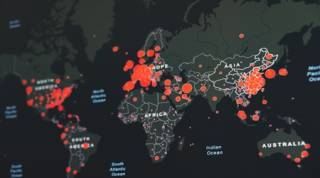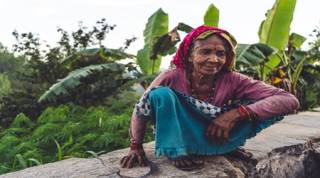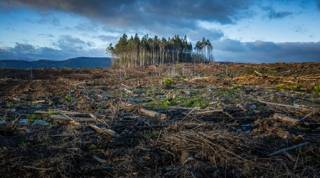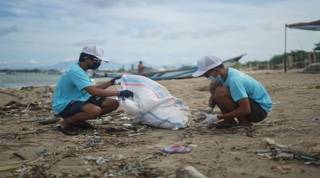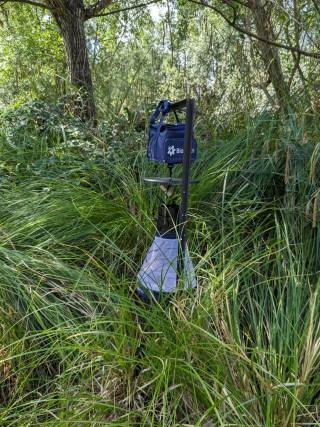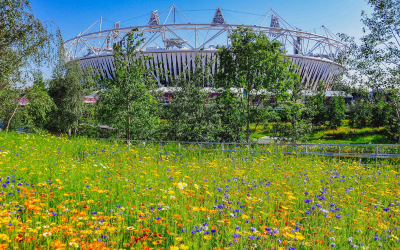| Programme Details | |
|---|
| Start Date | September entry |
| Awards Available | MSc |
| Duration | 1 year Full Time
2 years Part Time |
| Location | UCL East Campus |
Why Study MSc Ecology, Climate Change and Health
Human health and the health of environments are inextricably linked. Human-driven processes such as climate change, pollution, urbanisation and intensive agriculture are degrading biodiversity and putting increasing pressure on the planet's ecosystems, with complex consequences for health. For example, the loss of key ecological processes threatens food production and water security, and habitat degradation and climate change are together contributing to the zoonotic spillover and spread of infectious diseases. Solutions to these complex problems inherently need to take multidisciplinary approaches, uniting theory, knowledge and analytical tools from ecological, environmental and health sciences, yet often fail to do so.
This new MSc course will train the next generation of leaders with the expertise and core capabilities to work collaboratively across ecological and social domains to address this century's emerging challenges to health. Core modules will equip students with a foundational understanding of the intersections between biodiversity, climate change and public health, and practical expertise to apply cutting-edge analytical and data science tools to develop knowledge and solutions in this field.
Alongside core modules, optional modules in topics such as ecological monitoring, epidemiology, health inequalities and social determinants of health allow students from varied disciplinary backgrounds to benefit from UCL's unparalleled breadth of expertise. Students will all engage with professionals from government, industry, NGOs and communities to understand the process of linking evidence to applied solutions. All students will further develop research, analytical and project management skills through conducting an individual research project with one or more supervisors based at UCL or partner institutions.
This cross-disciplinary programme welcomes both ecologists seeking to apply their skills and deepen their knowledge of public health and climate change, and those from a health sciences background keen to learn to apply their skills within One Health and climate change settings.
Why study this programme at UCL?
The MSc Ecology, Climate Change and Health is taught in UCL’s purpose-built People and Nature Lab at the new UCL East campus in the Queen Elizabeth Olympic Park in Stratford in East London. Our People and Nature Lab represents an exciting new cross-disciplinary research and teaching partnership to facilitate innovative approaches to tackle the societal challenges posed by biodiversity loss, global ecosystem degradation and climate change, to support a more sustainable relationship between people and nature.
The MSc draws on UCL’s breadth of expertise across disciplines from ecology and global change sciences to epidemiology and health sciences. This will offer students a unique opportunity to develop a rich understanding of the relationships between environmental change and health, develop new ideas and participate in groundbreaking interdisciplinary research.
UCL’s People and Nature Lab expands the work of the Centre for Biodiversity and Environment Research (CBER) within the Research Department of Genetics, Evolution and Environment. Building on nearly two centuries of the study of the natural environment, CBER was established in 2013 as a world-leading centre of excellence for the study of the impact of rapid environmental change on biodiversity, how species are adapting to anthropogenic change, and how the degradation of nature impacts people and society, including through health. This programme is taught in collaboration with the Faculty of Population Health Sciences and the UCL Health of the Public.
The Ecology, Climate Change and Health MSc is directed by Professor Kate Jones, a world-leading ecologist who has made key advances in modelling and forecasting zoonotic disease outbreaks in humans, breaking down traditional barriers between ecology, climate change and public health to inform global policy.
This MSc be run as a new type of post-graduate course taught by a truly cross-disciplinary team of scientists from UCL’s departments of GEE, Institute of Epidemiology and Health Care, Institute for Global Health, UCL Arts and Sciences, and industry partners from the Zoological Society of London and the Natural History Museum. This breadth of teaching will address the urgent need to produce professionals with expertise across ecology, climate change and public health.
Career Opportunities
Graduates of the MSc Ecology, Climate Change and Health will leave with the practical and conceptual experience and project management skills to implement multidisciplinary approaches to tackle the grand challenges to health posed by climate change and ecological degradation, underpinned by a One Health approach. Students will also have the necessary insight to plan and undertake independent research, and the ability to report findings to a variety of audiences.
This in-depth knowledge and experiential skill set will provide you with a unique point of difference that meets a fast-growing need across all industries. For example, academic and non-academic research institutions, health agencies, local government, UK government organisations such as Defra, Department of Health and Social Care and UK Health Security Agency, environmental and health consultancies, and health, environment and climate NGOs.
Course Content
Compulsory modules
Foundations of Ecology, Climate Change and Health
Learn key concepts exploring the interconnectedness of human, animal, and ecosystem health in addressing global challenges such as zoonotic diseases, antimicrobial resistance, mental health, and climate-related risks.
Data Science for Ecology, Climate Change and Health
Learn advanced data science skills such as AI and key statistical and mathematical methods for addressing global health challenges combining epidemiology, public health, ecology, climate science, and socioeconomic data.
Nature Smart Challenge: One Health
Implement new One Health knowledge and skills within a group dynamic to address a real-world problem partnering with UCL academics or external industry partners.
Optional modules
Epidemiology
Understand key concepts in studying disease and how it spreads, building a foundational understanding of how to interpret health data.
Climate Change and Health
Explore the global impact of climate change on health, covering topics like food, water, poverty, and equity and understand the implications of these changes on health systems and policy.
The Social Determinant of Global Health
Understand and analyse the impact of social determinants on health, learn to recognise health inequalities, and evaluate the policy implications of this evidence within the broader context of public health and global health.
MSc Ecology, Climate Change and Health Research Project
A range of projects will be available working with UCL academics and programme partners including the Zoological Society of London and the Natural History Museum London. Students will carry out an original piece of research in ecology-climate-health related issues developed with the student’s expert supervisory team. The student will produce a dissertation detailing and critically analyzing their work and will be expected to prepare an oral presentation delivered to an invited audience.
Health Case Study
UCL’s research in Ecology, Climate Change and Health
Researchers at the People & Nature Lab and Centre for Biodiversity and Environment Research work with colleagues across academic, business, health and environment policy sectors to develop knowledge and solutions for the health impacts of ecosystem and climate change.
Our research has included major global risk assessments and mapping for emerging infectious disease risk, studies assessing in detail the relationships between land use, biodiversity change and zoonotic disease, and work to understand the cognitive benefits of natural vegetation in cities.
In collaboration with the Institute for Environmental Design and Engineering from the Bartlett Faculty of the Built Environment, we have recently been conducting field studies to understand the relationship between urban landscapes and mosquito-borne disease risk using the QEOP as a case study.
We also work with international partners to link research to implementation to improve health and biodiversity outcomes. Our recent and current projects include the development of actionable climate-based forecasting tools for Lassa fever in collaboration with the Nigeria Centre for Disease Control and Microsoft Research; socio-ecological research into zoonotic disease at the human-wildlife-livestock interface in collaboration with Uganda Virus Research Institute and UCL Institute for Global Health; and the multi-country WWF-funded Biome Health Project to understand the resilience of ecosystem health to anthropogenic pressures.
Image of mosquito trap © Hector Altamirano, 2023
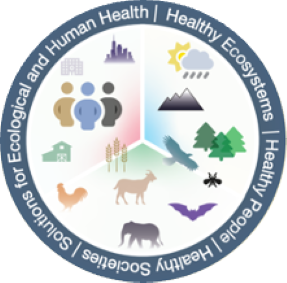
 Close
Close


